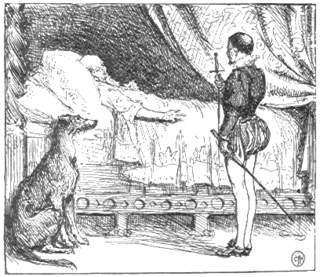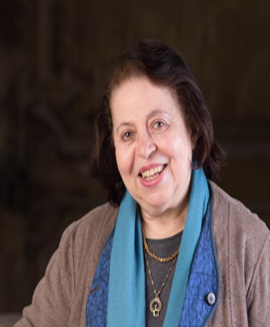Related Research Articles

"Trusty John", "Faithful John", "Faithful Johannes", or "John the True" is a German fairy tale collected by the Brothers Grimm and published in Grimm's Fairy Tales in 1819. Andrew Lang included it in The Blue Fairy Book.
The Snake Prince is an Indian fairy tale, a Punjabi story collected by Major Campbell in Feroshepore. Andrew Lang included it in The Olive Fairy Book (1907).
The Blue Belt is a Norwegian fairy tale collected by Peter Christen Asbjørnsen and Jørgen Moe in Norske Folkeeventyr. It is Aarne-Thompson type 590.

Stith Thompson was an American folklorist: he has been described as "America's most important folklorist".
The Spinning-Woman by the Spring or The Kind and the Unkind Girls is a widespread, traditional folk tale, known throughout Europe and in certain regions of Asia, including Indonesia. The tale is cataloged as AT 480 in the international Folktale catalog.

Daniel Martin Varisco, is an American anthropologist and historian.
Jason Baird Jackson, Ph.D. is Professor of Folklore and Anthropology at Indiana University Bloomington. He is "an advocate of open access issues and works for scholarly communications and scholarly publishing projects." At IUB, he has served as Chair of the Department of Folklore and Ethnomusicology and as Director of the Folklore Institute. According to the Journal of American Folklore, "Jason Baird Jackson establishes himself as one of the foremost scholars in American Indian studies today."
John Holmes McDowell is a Professor in the Department of Folklore and Ethnomusicology at Indiana University Bloomington. He also serves as Director of the Diverse Environmentalisms Research Team (DERT) headquartered at Indiana University. Broadly speaking his work is centered on performance and communication as well as the interplay of creativity and tradition. Geographically most of his fieldwork has been in Mexico, Colombia, Cuba, Ecuador, and Ghana. His interests include Speech play and verbal art; the corrido of Greater Mexico; music, myth, and cosmology in the Andes; ecoperformativity; commemoration; folklorization; ethnopoetics; Latin America; the United States.
Herbert Halpert was an American anthropologist and folklorist, specialised in the collection and study of both folk song and narrative.
Folklore Institute refers to the folklore studies program of Indiana University Bloomington (USA). The Folklore Institute, together with the Ethnomusicology Institute, constitute the larger Department of Folklore and Ethnomusicology. The Department of Folklore and Ethnomusicology is a unit of the College of Arts and Sciences.
Riad Ahmed Riad Mohamed Riad an Egyptian scholar and geographer. Among his books is “Journey in the time of Nubia", His original family name is Qassem Urfally.

The year-riddle is one of the most widespread, and apparently most ancient, international riddle-types in Eurasia. This type of riddle is first attested in Vedic tradition thought to originate in the second millennium BCE.
The Motif-Index of Folk-Literature is a six volume catalogue of motifs, granular elements of folklore, composed by American folklorist Stith Thompson. Often referred to as Thompson's motif-index, the catalogue has been extensively used in folklore studies, where folklorists commonly use it in tandem with the Aarne–Thompson–Uther Index, an index used for folktale type analysis.
The Princess in the Suit of Leather is an Egyptian folktale. It may also be referred to as The Princess in the Leather Burqa. This story was originally published in translation in Inea Bushnaq's 1986 collection Arab Folktales. Author Angela Carter included it in The Old Wives’ Fairy Tale Book.
William Hansen is an American academic who is a professor emeritus of classical studies and folklore at Indiana University Bloomington.
The Calumniated Wife is a motif in traditional narratives, numbered K2110.1 in Stith Thompson's Motif-Index of Folk-Literature. It entails a wife being falsely accused of, and often punished for, some crime or sin. This motif is at the centre of a number of traditional plots, being associated with tale-types 705–712 in the Aarne–Thompson–Uther Index of tale-types.

Deborah Kapchan is an American folklorist, writer, translator and ethnographer, specializing in North Africa and its diaspora in Europe. In 2000, Kapchan became a Guggenheim fellow. She has been a Fulbright-Hays recipient twice, and is a Fellow of the American Folklore Society. She is professor of Performance Studies at New York University, and the former director of the Center for Intercultural Studies in Folklore and Ethnomusicology at the University of Texas at Austin.
The Snail Son is a character that appears in Japanese folktales, as a type of enchanted husband that becomes disenchanted from his animal form and becomes a handsome man. Some tales are related to the cycle of Animal as Bridegroom or The Search for the Lost Husband.

Aliaa R. Rafea is an Egyptian writer, spiritual activist, and professor of Sociology at Faculty of Women for Arts at Ain Shams University. She is the founder and president of the Human Foundation.
Dog, and His Human Speech is a Central African folktale collected by missionary Robert Hamill Nassau, from the Tanga people. According to scholars, the tale is related to the folkloric theme of the Calumniated Wife, and finds parallels with European variants of tale type ATU 707, "The Three Golden Children", of the international Aarne-Thompson-Uther Index.
References
- 1 2 3 "Hasan M. El-Shamy: Curriculum Vitae (2016)" (PDF). Archived from the original (PDF) on 2019-02-24. Retrieved February 23, 2019.
- ↑ "Hasan El-Shamy". Department of Folklore and Ethnomusicology. Retrieved 18 December 2022.
- ↑ "About the American Folklore Society" . Retrieved December 18, 2009.